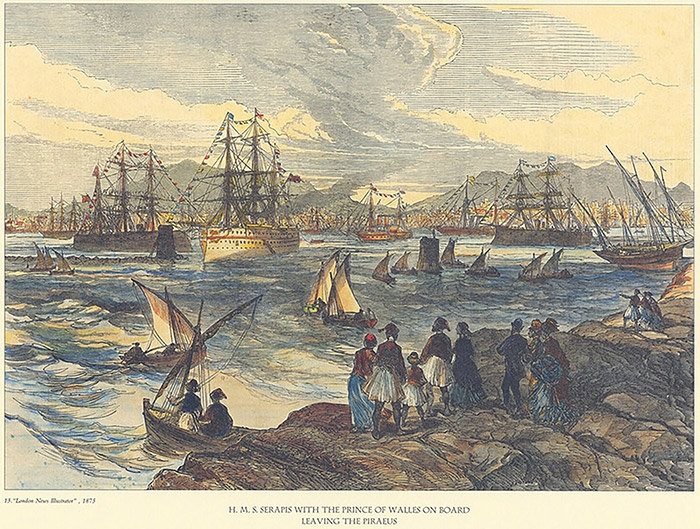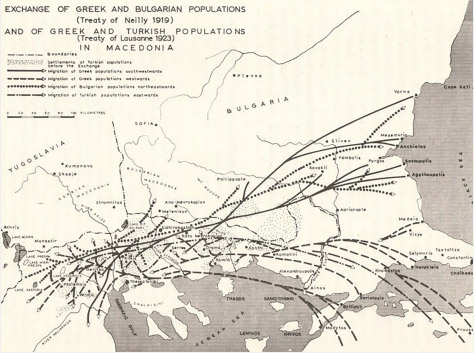COŞMOPOLITAИISMS—COŞMOPOLITICS
Cosmopolitanism is an ideology of imagining the world as one and united, yet founded on economic, political and moral divisions and hierarchies, many introduced during the colonial era. Thus questions of capital circulation, global governance and distributive justice are central to any discussion of cosmopolitanism. We are in search of a new political imagination of a common world that does not seek to replace one cosmopolitan ideology with another, but builds instead on practices of recognition, care and solidarity, already being enacted in social, indigenous, anticolonial movements and epistemologies of the South. In brief, we aspire to a cosmopolitics of inclusion.
This cluster accordingly will situate Hellas within three main contexts: 1. Colonial, imperial and contemporary circuits of capital and labor/indigenous resistance to enclosures and market expansions; 2. Fields of knowledge production and expertise on conflict, culture and crisis governance; 3. Networks of anti-colonial intellectuals and movements, attitudes of critique and care, emancipating cosmologies of vulnerable populations and communities of solidarity.

HMS Serapis with the Prince of Wales on Board leaving the Piraeus. The Illustrated London News. 1875. Source: https://www.britishnewspaperarchive.co.uk/
Capital, Circulation, Exploitation
As a global maritime merchant economy from its institution to this day, modern Hellas can help us track the connections between colonialism and capitalism in its most free-floating modality — at sea.
- What can studies of Greek –maritime and terrestrial – merchant routes and networks, connections and cooperations between Greek bourgeois enterprises and colonial companies, maritime and terrestrial enclosures, legal and economic forms of exploitation, transnational piracy, flags of convenience and other practices of “primitive” accumulation in the nascent nation reveal about the links between colonialism and capitalism? How can we trace symbolic borrowings and material exchanges between the Greek merchant class and colonial and capitalist economies at sea or on land, as well as recent expansions into offshore, green and blue economies?
- How important are racialized aspects of economic development in the region and the mobilization of “whiteness” and alterity as disciplining forces? What might localized, transnational and diasporic movements of dissent and resistance – labor organization, strikes, sabotages, contrabands, bandits – against international and Greek land- or sea-based capital tell us about the limits and possibilities of merchant cosmopolitanism?

Map of Greek, Bulgarian and Turkish population exchanges following 1919 Treaty of Neilly and 1922 Treaty of Lausanne. In A. Vacalopoulos, History of Macedonia 1354-1833 (1973). Source: Institute for Balkan Studies
Conflict, Culture, Crisis
As a key laboratory for devising models of cosmopolitan post-conflict and crisis intervention, modern Greece can contribute to the tracing of genealogies, technologies and moralities of post-colonial governance.
- How have colonial schemes, such as Ottoman capitulations, protection of religious minorities, population exchanges and current controls of refugee flows — all introduced in the name of liberal cosmopolitan ideals, such as free trade, saving lives, and humanitarianism — further helped to consolidate the national purity and administrative powers of the Greek state? In the recent past, the intervention in divided Cyprus, the debt crisis and the maritime arbitration with Turkey can be added to this inventory.
- What role have Greece-based and Greek diasporic communities of cosmopolitan expertise and knowledge production played in the disciplines of demography, cartography and economy, but also in the genealogies of debt governance, within the colonial archive?
- How have Greek scholars, intellectuals and cultural experts been inscribed in the international postwar networks of anti-communism and social engineering? How have Greek diaspora intellectuals (lawyers, artists, poets, scholars) participated in anti-colonial and social movements in the Global South and the West respectively?

CANAN, Purgatory, 2017. Tulle curtain, sequin, rope, cloth, bell, light source, rotating mechanism, Arter Collection from CANAN: Behind Mount Qaf. Curator: Nazlı Gürlek. Exhibition view, 2017. Photo: Murat Germen. Courtesy of Arter.
Care, Critique, Cosmologies
As a critical crossroads for radical and solidarity networks spanning the Balkans, the Eastern Mediterranean, the oceans and the Global South, the experience of Hellas can enrich our contemporary comprehension of cosmopolitical connections and the search for radical emancipatory practices through diverse cultural, religious and cosmological encounters.
- Might we revisit the cosmopolitan division between the secular and the religious and assess the impact of the Protestant hegemonic definition and grammar of religion on Orthodox Christianity and Islam?
- Might we discover new venues for cosmopolitics in embodied critique – protests, solidarities and resistances, feminist methodologies, memories of domination and slavery, forced labor, uprooting and refugee flight? What might we learn from treatments of the suffering body through care, music, performance in religious deviations? How might indigenous, gendered, intersectional, transindividual, inclusive practices of care and love, empathy and solidarity reveal the multiple faces of vulnerability and contest domination?
Convenors: Nikolas Kosmatopoulos, Despina Lalaki, Fotini Tsibiridou



